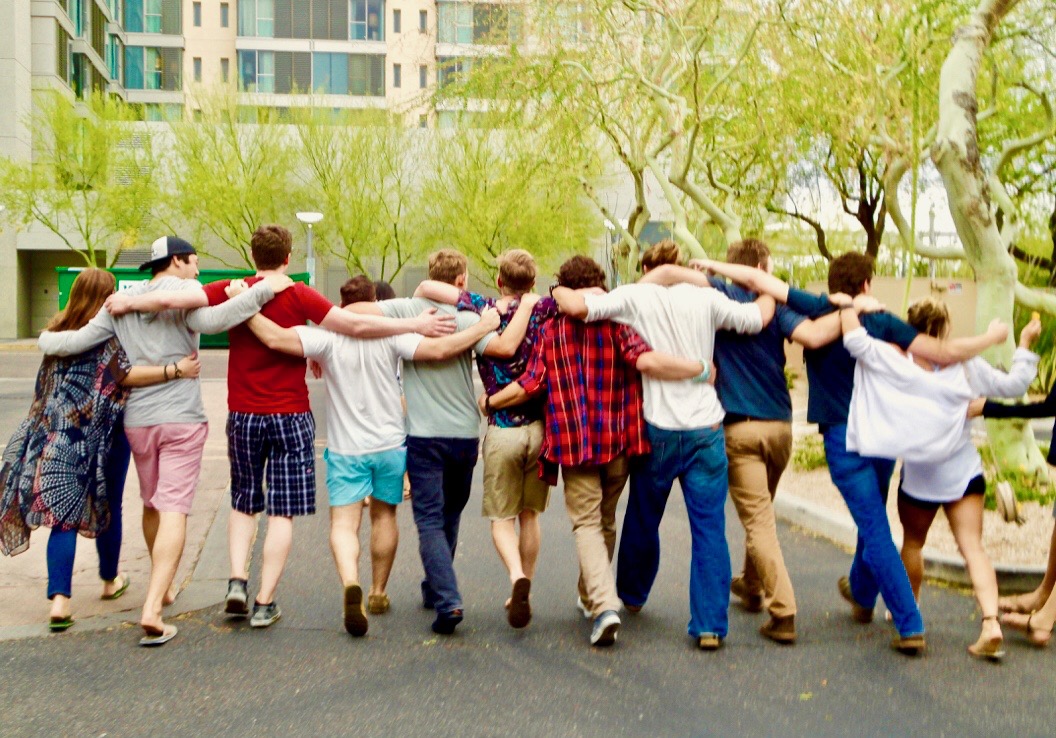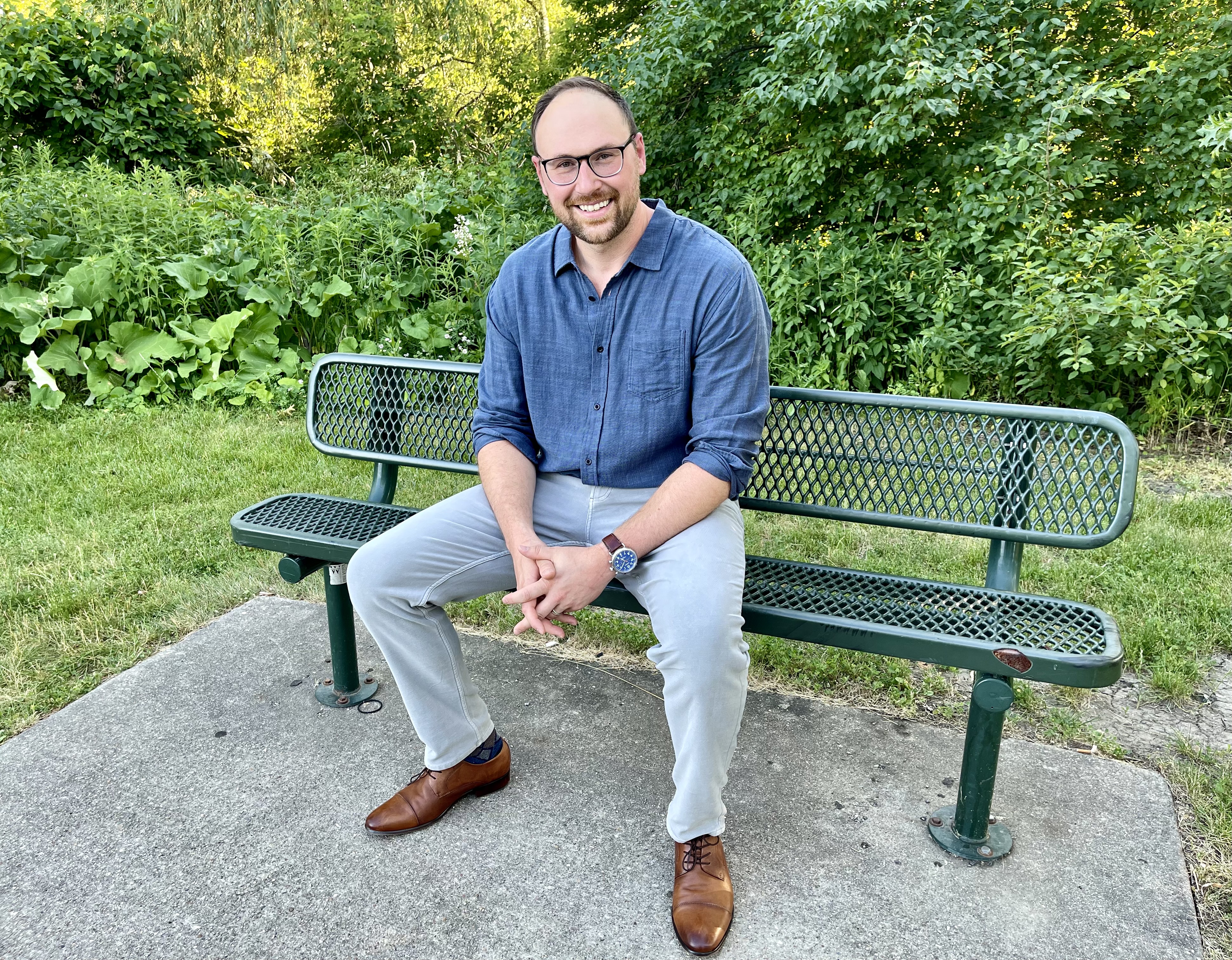
12 Hacks to Spark a New Relationship (Friendship, Dating, or Otherwise)
If you’ve read my previous post about friendship, I mentioned how I’ve noticed people becoming discouraged when trying to find new friendships/relationships.
They are unaware of where to even start. Some are in a new city, new job, or other circumstances have left them with a shortage of quality relationships. People of all ages struggle with this, so no matter your stage in life you are not alone.
Historically speaking, we never really had to go out and find people to connect with. They were already there….in our small tribe or community and were more or less chosen for us. Now we are left with too many options.
Listed below are some strategies, backed by research, to keep in mind when generating a new relationship in any context.
*Some can be found in the timeless book How to Win Friends and Influence People I cited in my post about soft skills.
- Know what you’re looking for.
Especially in dating it’s important to have a general idea of what you’re looking for. The criteria of course should not be too specific. Trying to find someone that drives a Lamborghini and has an indoor bowling alley might be ideal, but not all that likely. Instead, qualities such as trustworthiness and having similar beliefs are a better way to start. Consider who you’ve gotten along with in the past, or not gotten along with to help narrow down what’s most important.
- Don’t be quick to judge.
If you’ve ever seen a reality show where random people are put into a house it’s always interesting to hear people’s critical first impressions, and by the end of the show the same person they called “a pretentious bitch” is now their best friend.
Give it time and don’t always believe your first impressions. Our minds have been programmed to give these snap judgments, but allow them to develop and evolve over time. Of course this is not always the case, but being cognizant of our predisposition to do this can help us be patient.
- Generate deeper discussions and LISTEN.
Anyone can have a conversation about the weather. Not everyone can ask questions that stimulate a more enriching exchange. Cultivating this type of conversation is more akin to what you would find in a friendship and causes their subconscious to conclude they must feel safe with you. Make sure to listen, if you don’t people will pick up on it and the connection with fail.
However, without your input they could leave feeling too vulnerable, so make sure to offer at least a little more information about yourself then you normally would to a stranger.
Some people will take the lead and talk anxiously without pause (you know these people), so know when to assert yourself back into the conversation.
- Be interested in their interests
In general, people love to talk about themselves. One of the easiest ways to connect with someone is get him or her to speak about what’s important to them. If someone mentions they own a cupcake business they are probably passionate about baking. Ask questions about cupcakes and watch them light up.
- Find someone with similarities
We tend like people who are similar to us. Think back to high school or college and the pods of friends you would see together. In adulthood it may not be to that extreme but it definitely still applies. Similarities can provide validation to our beliefs, interests, and characteristics. We also tend to surround ourselves with people that mirror our physical attractiveness.
- See them often
This goes along with my “strangers-in-a-house” reality show example. The Propinquity Effect says the more we see someone the more prone we are to like him or her. When finding new relationships try signing up for something that allows you to see the same people more often. Even better, pick something that aligns with your interests to ensure similarities and kill two birds with one stone (softball, magic cards, leather conventions, mom groups). This is one of the reasons people often find love and friendships in the workplace.
- Act like you like them.
This one is simple. We like people who like us. A great example is when dogs are SO excited to see you after a long day away. If you want to be friends with someone, be friendly and positive when you see them.
- Ask them for a favor.
When we do someone a favor we tend to like them more. This is because it would create too much cognitive dissonance in our minds to do something for someone we didn’t like. Thus, we justify our behavior by assuming “I must like this person if I did them a favor.” Again, use your best judgment with this one; it can be something as small as getting them to pass you a pen.
- Be competent… but not too competent.
We generally like to surround ourselves with competent people. However, too much competence or a constant managing of outward perfection can have the opposite effect. When people make mistakes they are found to be more likeable. It’s uncomfortable to be around someone that puts on an act of perfection all the time; instead someone that projects an imperfect human side is safe.
Just make sure these human moments are in less important areas. Your boss would rather see your humanness in dropping a cup of coffee instead of being incapable of coming to work on time.
- Use conditioning.
Unless you’re Will Ferrell in Wedding Crashers, you are less likely to connect with someone at a funeral than at a concert or party. We like people who are nearby when we feel good. This is also why some suggest going to an amusement park on a first date. The person will begin to associate feelings of excitement, joy, and thrill with being in your presence.
- Smile and use their name.
If all else fails, just smile and remember their name. A simple smile sends a positive message about you and the other person that then becomes an emotional reward for being in your presence. Make an effort to remember someone’s name. Using their name is a small but powerful compliment and displays respect.
- Curb your fear of rejection.
Remember that many people are lonely these days; they could be starving for friendship and you may not even know it. Move the fear aside the best you can and realize that if it doesn’t work out it isn’t a rejection, but rather simply a friendship that wasn’t meant to be. Humans have fragile egos and these feared “rejections” often keep people from fulfilling connections—even at their detriment.
Whether you want to ask out a potential friend for coffee or a potential date for dinner… what is the most you have to lose? Oftentimes, there is much more to gain.
Start small and have faith in the process.
As you’ve noticed it takes some initiative to make new connections. If this is outside your comfort zone then it may be awkward or even draining to implementing these at first, but with practice will come more naturally. I promise.
Along with being proactive, its important to maintain an attitude of faith that you will find quality relationships. Going into the experience with a pessimistic attitude will only stunt the process.
Try implementing one friendship initiative within the next week. Start small. Ask someone that you don’t normally talk to how his or her day is going and listen intently. Ask a new acquaintance questions about their interests. New relationships are always just around the corner.
Adam Lencioni is a licensed mental health counselor empowering individuals and couples to overcome their personal obstacles and create flourishing, satisfying lives. He currently practices at CFC Therapy Group in Chicago, IL. Contact him at adam@cfctherapy.com.



